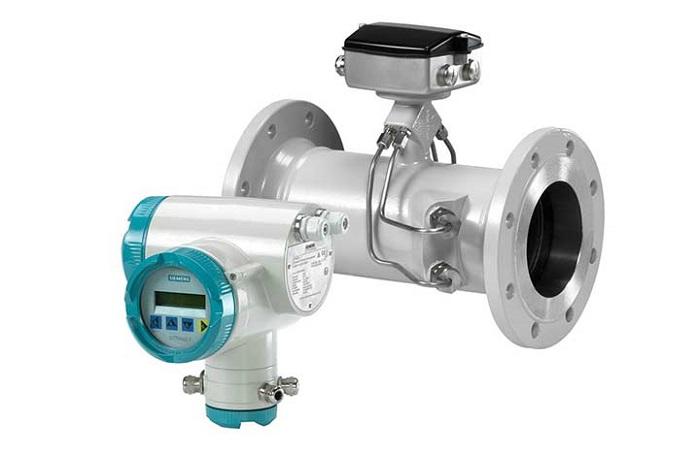What Industries Use Ultrasonic Flow Meters Most?

Ultrasonic flow meters are widely used devices that measure the flow rate of liquids and gases. They operate by sending ultrasonic signals through a fluid and calculating the velocity based on signal transit time or Doppler shift. These meters are valued for their accuracy, non-intrusive design, and low maintenance requirements. They are ideal for industries that need precise flow measurement under various conditions. This article explores the industries that use ultrasonic flow meters most and explains why these devices are preferred.
Water and Wastewater Industry
Monitoring Water Supply
The water industry relies heavily on accurate flow measurement. Ultrasonic flow meters provide real-time monitoring of water supply systems. They are non-intrusive, which means they do not require cutting pipes. This reduces downtime and risk of contamination. These meters can handle large pipe diameters and high flow rates, making them suitable for municipal water networks.
Wastewater Treatment
Wastewater treatment plants use ultrasonic flow meters to monitor sewage and industrial effluent. These meters help operators track flow rates, detect leaks, and manage chemical dosing. Because ultrasonic flow meters do not have moving parts, they are resistant to fouling and corrosion. This reliability is critical for continuous wastewater operations.
Oil and Gas Industry
Pipeline Monitoring
The oil and gas industry requires precise measurement of crude oil, natural gas, and refined products. Ultrasonic flow meters are widely used for pipeline monitoring. They offer high accuracy over long distances and can measure high-pressure fluids without direct contact. This reduces maintenance needs and safety risks in hazardous environments.
Refineries and Processing
In refineries, ultrasonic flow meters measure the flow of petroleum products and chemical feedstocks. They help maintain process efficiency and product quality. Their ability to operate in extreme temperatures and high-pressure conditions makes them ideal for refining operations.
Chemical and Petrochemical Industry
Process Control
Chemical manufacturing demands precise flow measurement to maintain reaction balance. Ultrasonic flow meters provide accurate data for liquids, gases, and slurries. They help control the rate of chemical addition, ensuring consistent product quality. Their non-intrusive design prevents contamination and reduces maintenance costs.
Handling Aggressive Fluids
Many chemicals are corrosive or abrasive. Ultrasonic flow meters do not require contact with the fluid in clamp-on designs, reducing wear and tear. This capability makes them suitable for acids, caustics, and other aggressive substances in chemical plants.
Food and Beverage Industry
Production Line Efficiency
The food and beverage industry uses ultrasonic flow meters for liquids like milk, juice, and water. These meters help monitor flow rates in production lines, ensuring consistent portioning and quality control. Non-intrusive meters reduce contamination risks, which is essential for food safety compliance.
Cleaning and Sanitation
Sanitation processes in this industry require monitoring of water and cleaning agents. Ultrasonic flow meters provide accurate measurements during cleaning cycles. They withstand temperature variations and chemical exposure, maintaining reliability in hygienic environments.
Pharmaceutical Industry
Accurate Dosage Measurement
Pharmaceutical production requires precise liquid measurement for medicines and chemical reagents. Ultrasonic flow meters ensure correct dosing, which is critical for product safety and regulatory compliance. Their accuracy and repeatability make them indispensable in drug manufacturing.
Maintaining Sterility
Clamp-on ultrasonic meters are especially useful in sterile production environments. They measure flow without contacting the liquid directly. This prevents contamination and reduces cleaning requirements, supporting sterile manufacturing protocols.
Power Generation Industry
Cooling Water Management
Power plants use ultrasonic flow meters to measure cooling water flow. Accurate monitoring is essential for efficient thermal management. These meters help prevent overheating and optimize energy consumption.
Steam and Gas Measurement
Ultrasonic flow meters also measure steam and other gases in power plants. Their ability to handle high temperatures and pressures makes them suitable for energy applications. Accurate flow measurement ensures efficiency and safety in power generation.
Pulp and Paper Industry
Process Control
Pulp and paper manufacturing requires precise control of water, chemicals, and pulp slurry flow. Ultrasonic flow meters monitor these fluids efficiently. Their non-intrusive design reduces maintenance and prevents clogging in pipes carrying fibrous materials.
Quality Assurance
Consistent flow measurement ensures uniform paper quality. Ultrasonic flow meters provide real-time data to optimize production speed, chemical usage, and water management. This contributes to higher efficiency and lower production costs.
Conclusion
Ultrasonic flow meters are versatile and reliable devices used across multiple industries. They are most common in water and wastewater management, oil and gas pipelines, chemical and petrochemical plants, food and beverage production, pharmaceutical manufacturing, power generation, and pulp and paper operations. These meters are valued for their non-intrusive design, high accuracy, and durability under challenging conditions. By providing precise flow measurement without disrupting processes, ultrasonic flow meters enhance efficiency, safety, and product quality in many industrial applications.
- Art
- Causes
- Crafts
- Dance
- Drinks
- Film
- Fitness
- Food
- Jogos
- Gardening
- Health
- Início
- Literature
- Music
- Networking
- Outro
- Party
- Religion
- Shopping
- Sports
- Theater
- Wellness



